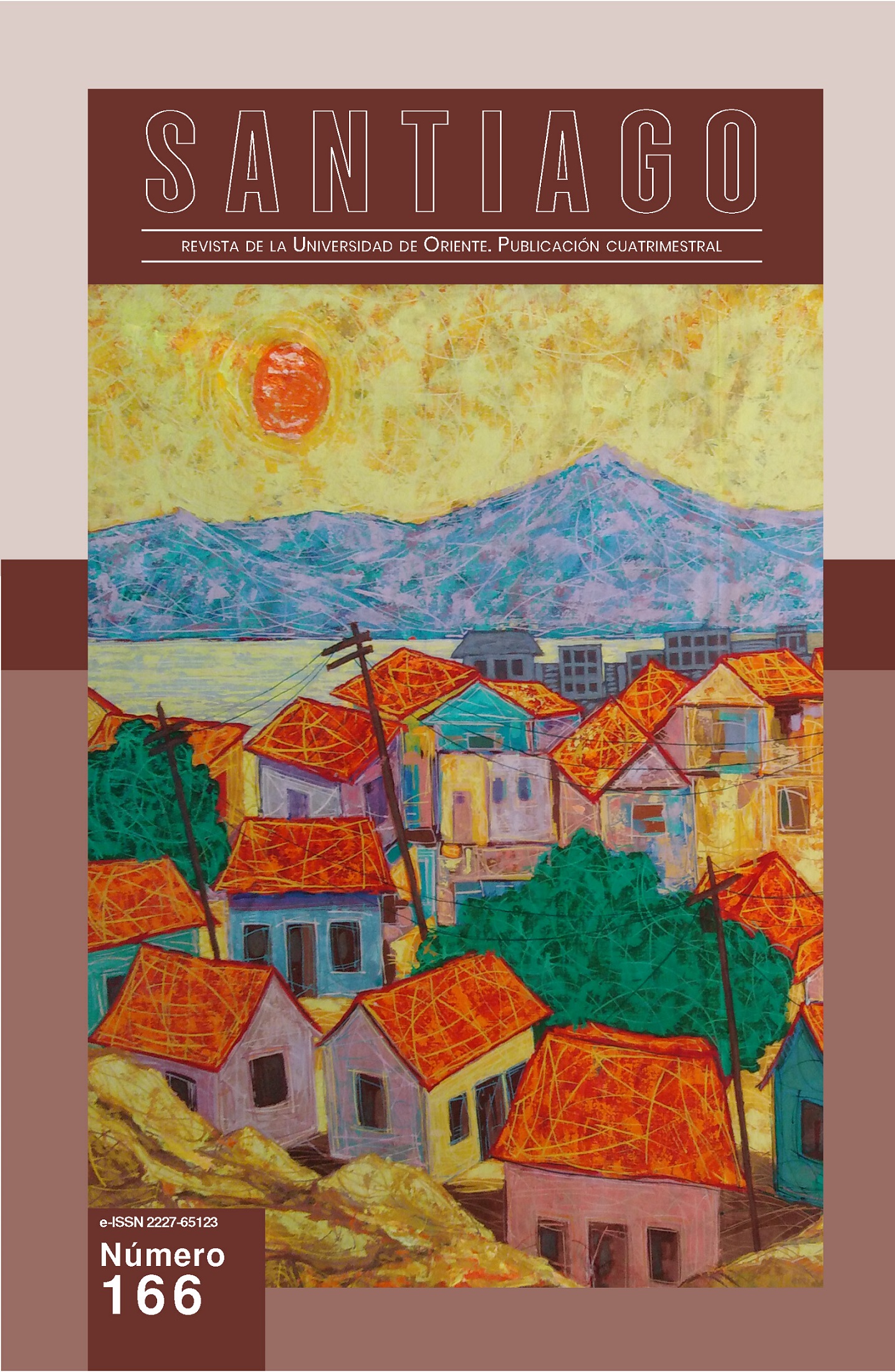Daniela Catrileo's archive in Chilco: language, displacement, and the Mapuche worldview
Keywords:
archive, Chilco, Daniela Catrileo, Mapuche literature.Abstract
This paper proposes an approach to the configuration of the archive in Daniela Catrileo's novel Chilco (2023), with the aim of analyzing the Mapuche archive as a space of tension, where the recovery of ancestral memory confronts the persistent marks of colonialism. Materials and methods: In our analysis, we employ, from a critical reading, the notions about the archive proposed by Jacques Derrida in his study Archive Fever: A Freudian Impression and by Achille Mbembe in “The Power of the Archive and Its Limits.” Results: The results revealed, through literary fiction, the impossibility of configuring an “authentic” Mapuche archive that is not permeated by colonial influence. Discussion: In the novel, the Mapuche writer proposes an alternative archive that attempts to challenge the selective violence of the dominant archive, and to this end articulates a duality between hegemonic and counter-hegemonic archives. Conclusions: Faced with a narrative structure that shows the representation of the archive in tension, the Mapuche archive stands as incomplete and fractured, impossible to configure as “authentic” because it is permeated by colonial structures.This paper proposes an approach to the configuration of the archive in Daniela Catrileo's novel Chilco (2023), with the aim of analyzing the Mapuche archive as a space of tension, where the recovery of ancestral memory confronts the persistent marks of colonialism. Materials and methods: In our analysis, we employ, from a critical reading, the notions about the archive proposed by Jacques Derrida in his study Archive Fever: A Freudian Impression and by Achille Mbembe in “The Power of the Archive and Its Limits.” Results: The results revealed, through literary fiction, the impossibility of configuring an “authentic” Mapuche archive that is not permeated by colonial influence. Discussion: In the novel, the Mapuche writer proposes an alternative archive that attempts to challenge the selective violence of the dominant archive, and to this end articulates a duality between hegemonic and counter-hegemonic archives. Conclusions: Faced with a narrative structure that shows the representation of the archive in tension, the Mapuche archive stands as incomplete and fractured, impossible to configure as “authentic” because it is permeated by colonial structures.This paper proposes an approach to the configuration of the archive in Daniela Catrileo's novel Chilco (2023), with the aim of analyzing the Mapuche archive as a space of tension, where the recovery of ancestral memory confronts the persistent marks of colonialism. Materials and methods: In our analysis, we employ, from a critical reading, the notions about the archive proposed by Jacques Derrida in his study Archive Fever: A Freudian Impression and by Achille Mbembe in “The Power of the Archive and Its Limits.” Results: The results revealed, through literary fiction, the impossibility of configuring an “authentic” Mapuche archive that is not permeated by colonial influence. Discussion: In the novel, the Mapuche writer proposes an alternative archive that attempts to challenge the selective violence of the dominant archive, and to this end articulates a duality between hegemonic and counter-hegemonic archives. Conclusions: Faced with a narrative structure that shows the representation of the archive in tension, the Mapuche archive stands as incomplete and fractured, impossible to configure as “authentic” because it is permeated by colonial structures.
References
Agudelo, Barros Cruz, M. J. (2022, mayo). La poesía de Daniela Catrileo: Escribir la diáspora mapuche y la (im)posibilidad del retorno. Perífrasis, 13(26), 65-83.
Catrileo, D. (2023). Chilco. Seix Barral.
Derrida, J. (1997). Mal de archivo. Una impresión freudiana. Editorial Trotta. https://es.scribd.com/document/405760604/mal-de-archivo-derrida-pdf
Jáuregui, C. A. (2020). Espectros y conjuras. Asedios a la cuestión colonial. Editorial Iberoamericana / Vervuert.
Libro, M. F. (2024, diciembre). Desterrados de todas partes: Procesos de gentrificación en Chilco de Daniela Catrileo. Telar, 277-303.
Lizana, P. (2024, junio). Lo espeluznante-espectral en la novela Chilco de Daniela Catrileo. Árboles y Rizomas, 6(1), 73-90.
Loncón Antileo, E. (2019, diciembre). Una aproximación al tiempo, el pensamiento filosófico y la lengua mapuche. Árboles y rizomas, I(2), 67-81.
Mbembe, A. (2020). El poder del archivo y sus límites. Orbis Tertius, 25(31). www.orbistertius.unlp.edu.ar/article/download/OTe154/12428/31513
Quijano, A. (2007). Colonialidad del poder y clasificación social. En El Giro Decolonial: Reflexiones para una diversidad epistémica más allá del capitalismo global (pp. 93-126). Siglos del Hombre Editores.
Rodríguez Ayala, A. I. (2024). Identidades transcoloniales y territorio: Análisis de la construcción de la subjetividad mapuche, mestiza y champurria en la novela Chilco (2023) de Daniela Catrileo. [Tesis de licenciatura, Universidad de Chile]. repositorio.uchile.cl/handle/2250/204614
Sarmiento, D. F. (2007). Facundo o civilización y barbarie en las pampas argentinas. www.cervantesvirtual.com/obra/facundo-o-civilizacion-i-barbarie-en-las-pampas-argentinas--0/
Published
Issue
Section
License
Copyright (c) 2025 Alejandra Ferrer Cairo

This work is licensed under a Creative Commons Attribution-NonCommercial-NoDerivatives 4.0 International License.
CC Reconocimiento-NoComercial-SinObrasDerivadas 4.0



.jpg)

_de_logo.jpg)













